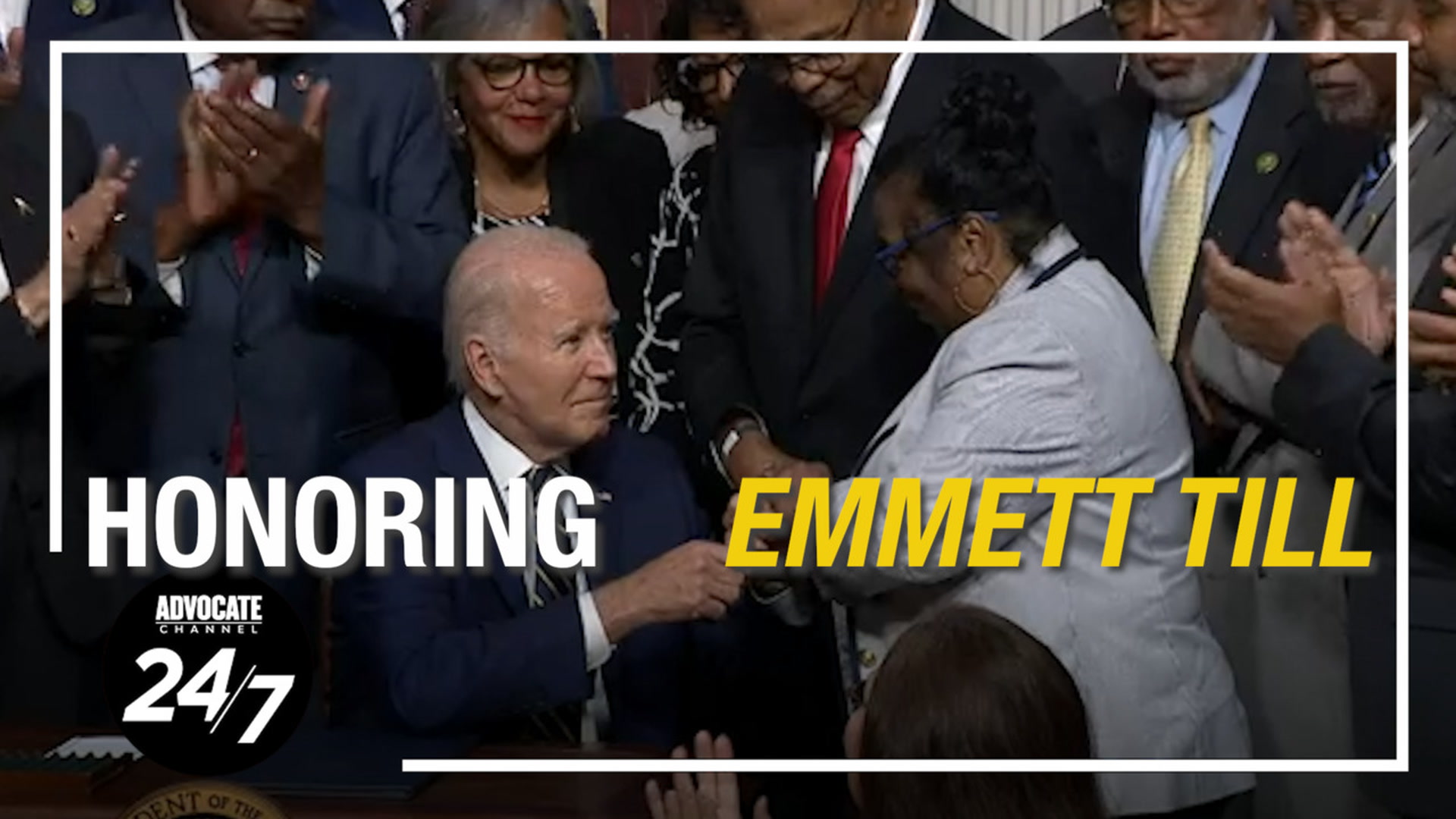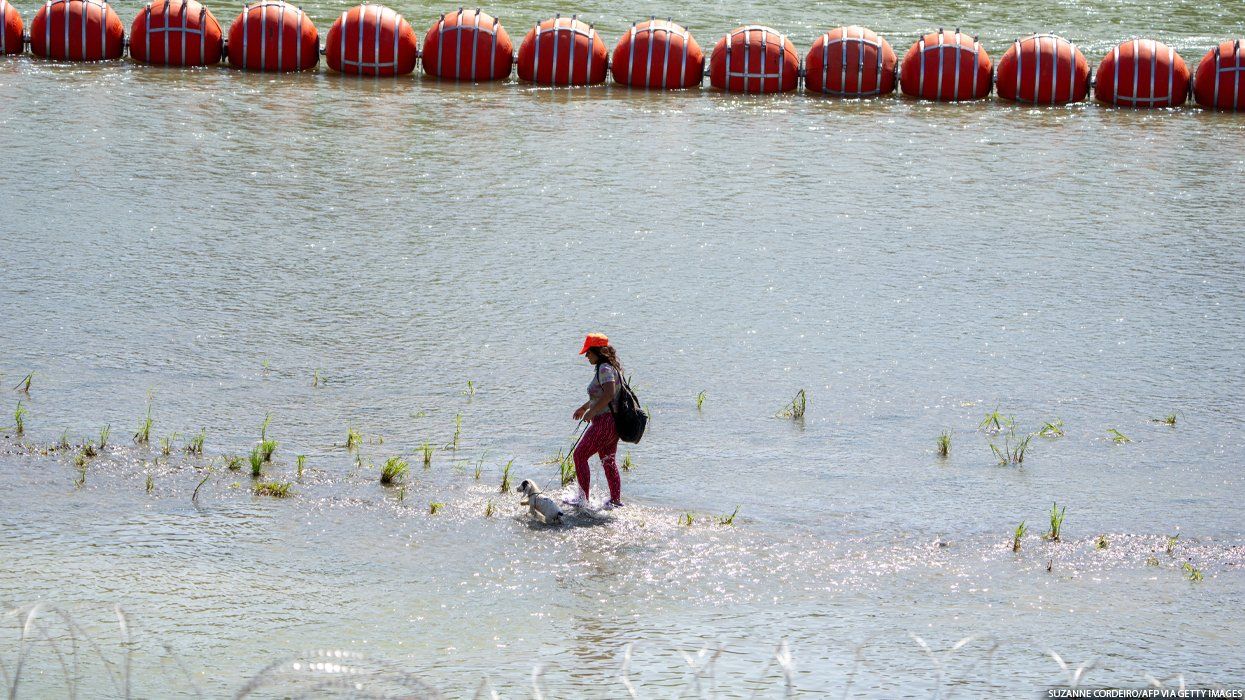The Department of Justice has filed a lawsuit against the state of Texas over a barrier of buoys in the Rio Grande River designed to block migrants from entering the United States.
In a statement announcing the lawsuit, Associate Attorney General Vanita Gupta said that the barrier “risks damaging U.S. foreign policy.”
“We allege that Texas has flouted federal law by installing a barrier in the Rio Grande without obtaining the required federal authorization,” she said. “This floating barrier poses threats to navigation and public safety and presents humanitarian concerns."
DOJ Sues Texas

The barrier spans nearly 1,000 feet, and is comprised of buoys four to six feet in diameter. Texas has also installed razor wire on the shore, which border patrol officers report has led to parents and children becoming trapped and bloodied. Some officers have reported being given orders to deny migrants drinking water, and “push the people back into the water to go to Mexico.”
In their suit, the DOJ cited the Rivers and Harbors Act, which prohibits unauthorized structures that block navigable waters. Officials say that Texas did not seek authorization before installing the barrier, nor was permission granted. Another legal guideline in their favor is the International Boundary and Water Commission (IBWC), a joint agreement between the U.S. and Mexico that prohibits construction from inhibiting the flow of the Rio Grande River.
In anticipation of the suit, Texas Governor Greg Abbott, a Republican, said in a Monday letter to the DOJ that the state "will see you in court.” He also incorrectly accused Biden's "open border policies" of encouraging migrants to cross into the United States, regardless of safety conditions.
The White House refuted his claims in a statement after filing the lawsuit, noting: “President Biden’s border enforcement plan has led to the lowest levels of unlawful border crossings in over two years. Governor Abbott’s dangerous and unlawful actions are undermining that effective plan, making it hard for the men and women of Border Patrol to do their jobs of securing the border, and putting migrants and border agents in danger."



















































